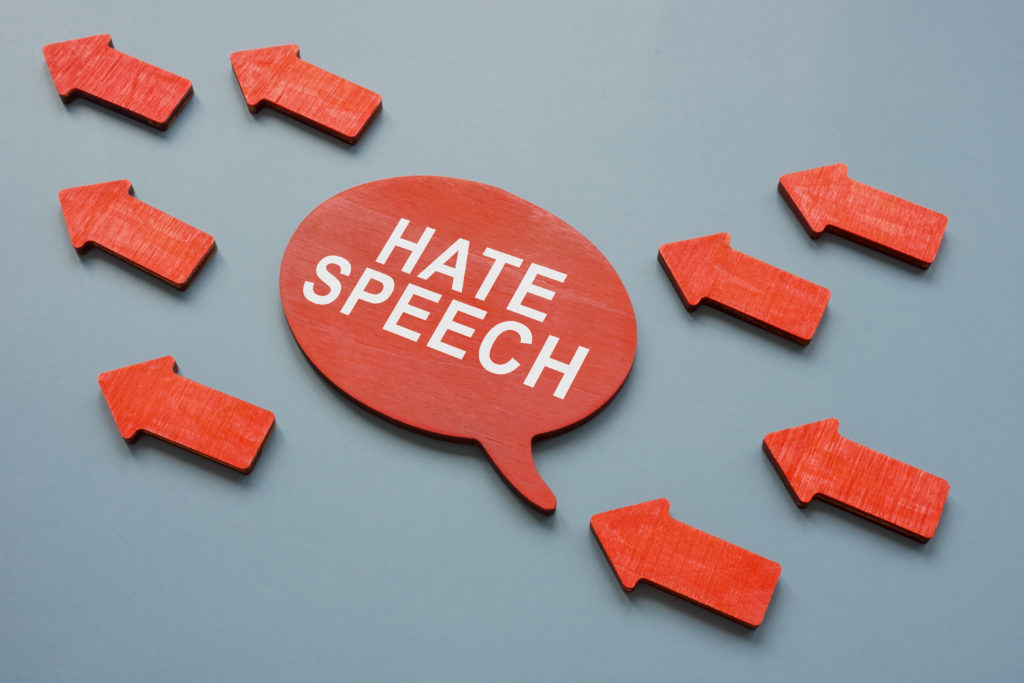Quick Hits
Daily brief research updates from the cognitive sciences

I am sure we all know that feeling of getting more irritable when temperatures rise. Well, now we have some fascinating research to show that that irascibility is also measurable in the amount of hate speech online.
We may assume that hate speech is simply the language of a number of opinionated and disagreeable folk. Sure, it is, but this shows that, seemingly, local temperatures magnify this effect.
So, what was this fascinating study?
This was conducted by Annika Stechemesser, et al. of the Potsdam Institute for Climate Impact Research by analysing over 4 billion tweets in the US using AI algorithms. From this they identified about 75 million English phrased hate tweets. They were then mapped to local temperatures and lo and behold a correlation was found.
What they found is that there is feel good window which corresponds to the minimum of hate tweets. That feel good window is between 12 and 21°C with the absolute minimum between 15 and 18°C. Temperatures either above or below, interestingly, led to an increase in hate tweets. Temperatures above 30°C are consistently linked to an increase in hate tweets across climate zones and socioeconomic differences including income, religious beliefs, or political preferences.
This is fascinating because it shows that local environmental conditions also impact hate behaviour – previously only considered as an attitude, personality, or belief problem. It also shows that changing climate dynamics with a global increase in extreme weather will likely also drive an increase in bad behaviour online and on social media.
Note also that this is not US specific with the same group of researchers also finding similar patterns in Europe.
This is important to note because this behaviour will likely occur in all social situations, in business and in society. We seem to have an optimal window and out of this things get, well, heated.

Andy Habermacher
Andy is author of leading brains Review, Neuroleadership, and multiple other books. He has been intensively involved in writing and research into neuroleadership and is considered one of Europe’s leading experts. He is also a well-known public speaker, speaking on the brain and human behaviour.
Andy is also a masters athlete (middle distance running) and competes regularly at international competitions (and holds a few national records in his age category).
References
Annika Stechemesser, Anders Levermann, Leonie Wenz.
Temperature impacts on hate speech online: evidence from 4 billion geolocated tweets from the USA.
The Lancet Planetary Health, 2022; 6 (9): e714
DOI: 10.1016/S2542-5196(22)00173-5
A Stechemesser, L Wenz, M Kotz, A Levermann.
Strong increase of racist tweets outside of climate comfort zone in Europe.
Environmental Research Letters, 2021; 16 (11): 114001
DOI: 10.1088/1748-9326/ac28b3
More Quick Hits
Learning at double-speed?
Quick HitsDaily brief research updates from the cognitive sciences ouldn’t it be great if we could learn things double speed? Well, maybe we can. At least according to a study out of the University of California. During the pandemic many...
The “drunken monkey” hypothesis – proven
This had to be a story I covered – monkeys and alcohol sounds too good to pass up. But this is also linked to the “drunken monkey” hypothesis: that humans developed their love for alcohol in earlier primitive times accidentally, and then intentionally, eating fruit...
The Newly Discovered Bias That Makes Us Think We Are More Diverse Than We Are
A few weeks ago I reported on some newly discovered ways we are biased namely that we consider generic terms such as “people” as equivalent to “men” rather than men and women. This was specifically focused on gender bias but this latest piece recently published shows...
Self-awareness of autism leads to better quality of life
Autism has become a well-known diagnosis in recent years. Though some people seem to be against this sort of labelling, and the general increase in different label of mental conditions, a study out of the University of Portsmouth shows why this is actually a good...
Optimal sleep improves your brain, mental, and physical health - and it’s not as much as you think
I’ve reported multiple times on sleep and how it affects just about everything form cognitive performance, to brain plasticity, to physical performance, to mental health, and to metabolism. The question...
No change for a century – children’s backgrounds still predict the same educational outcomes
Educational opportunities have changed dramatically for children over the last century – schools have changed, and college and university admissions have grown. Or so we might think at least. But according to a study out of the University of York, that is not the...






